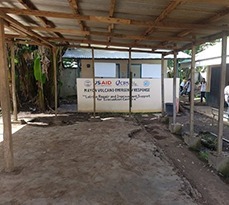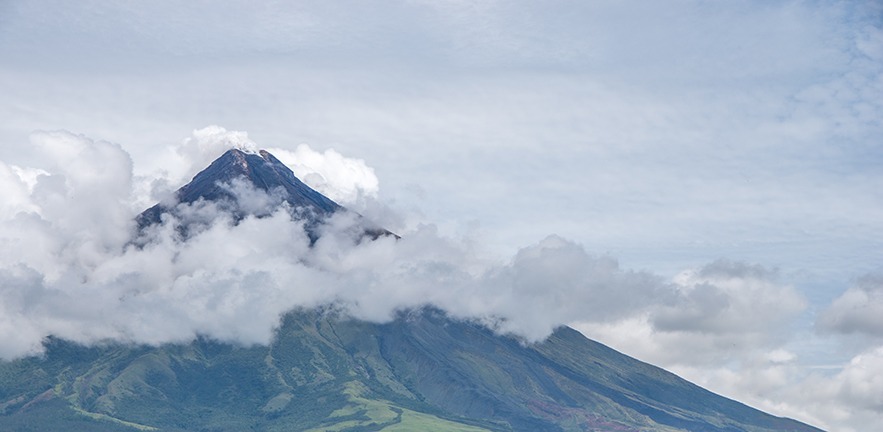Sat-comms companies such as Inmarsat are providing solutions to global challenges such as disaster relief. James Cemmell (EMBA 2017) explains how his organisation is making a difference in areas such as the Philippines.
The role of satellite-communications is not so much to do with space, but what is happening on the ground. From its base in London, Inmarsat provides communication services to sectors as diverse as maritime, governments and humanitarian aid agencies.
Set up as an intergovernmental organisation to provide distress communication support to ships out at sea, the company has grown to reflect the increasing needs and challenges surrounding global communication.
“We are entering what some call the ‘5G era’,”explains James Cemmell, VP of Government Engagement at Inmarsat. “Connectivity will be expected at all times, whether on an aircraft, an autonomous ship or a disaster zone in a remote area. Our international development programmes in the Philippines and Indonesia demonstrate how these challenges can be addressed in a way sympathetic to how people want to communicate.”
James seeks to connect Inmarsat’s work – as a private company – with the public agenda. The company wants to contribute their expertise and findings to policy discussions and maintain relationships with governments and global bodies that they work with. But it is the way in which Inmarsat can contribute to society’s wider benefit that he is most interested in.
Providing a communications solution in the Philippines
“With the advent of the UN’s 17 Sustainable Development Goals initiative, there is a much more robust opportunity for satellite communications to help solve global problems,” says James.
“The Philippines has a lot of exposure to disasters such as typhoons and earthquakes. When these events happen, mobile phone networks are compromised. Islands become isolated, people cannot call for help and humanitarian workers lack the information they need to support the relief effort.”
Inmarsat collaborated with the UK Space Agency and the Philippines Department of Social Welfare and Development to utilise their technology in providing a more effective disaster response.
How satellite technology is pushing digital frontiers in development
“I visited an evacuation centre in Legazpi city earlier this year, which housed 1800 people during the Mount Mayon eruption. The relief workers used Inmarsat communications to provide real-time updates on who was there and what was required, helping with the management of the relief effort. A different Inmarsat system was used at the main Incident Control Centre to provide information to the public using Facebook Messenger, ensuring that the public and media had up-to-date information delivered to them in real-time.”
Preparing for the future with an EMBA
James is all too aware of the pace of change in today’s modern world. To maintain resilience and give himself a platform on which to build his career, he joined Cambridge Judge Business School’s Executive MBA programme.

“The Cambridge EMBA is an opportunity to plug in and really examine the pace at which the world is changing. By its nature, the programme is practical – many a time I’ve returned from a weekend in Cambridge, able to frame a tricky problem and find a way to deal with it.
“Recently, I’ve reflected more on economics and what that really means for the space sector – being more analytical in this way allows for more rewarding engagements when I deal with policy makers and colleagues at work.”
Executive MBA classes attract individuals from different backgrounds, sectors and countries. James’ experience of this diversity in his first group project typified a learning curve that many EMBAs undergo when starting the programme.
“People like to say they are open to new ideas and viewpoints, but until that is actually tested, these are simply nice words. Our first group assignment had five people, each from a different cultural background, country and industry. We were immediately aware how each of us had our own “virtual reality” helmet! We would need to be very open – and forgiving – with each other if we were to succeed.
“My experience at Cambridge has been transformative. From what I’ve learned, I see many possibilities to be more purposeful and build on what I’ve already achieved. The programme will not be the last word in my learning and development, but it is an incredibly powerful platform that I intend to make the most of.”


